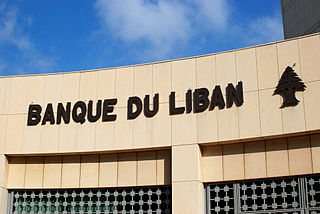Related Research Articles

Venture capital is a form of private equity financing that is provided by venture capital firms or funds to startups, early-stage, and emerging companies that have been deemed to have high growth potential or which have demonstrated high growth. Venture capital firms or funds invest in these early-stage companies in exchange for equity, or an ownership stake. Venture capitalists take on the risk of financing risky start-ups in the hopes that some of the companies they support will become successful. Because startups face high uncertainty, VC investments have high rates of failure. The start-ups are usually based on an innovative technology or business model and they are usually from high technology industries, such as information technology (IT), clean technology or biotechnology.
Business incubator is an organization that helps startup companies and individual entrepreneurs to develop their businesses by providing a fullscale range of services starting with management training and office space and ending with venture capital financing. The National Business Incubation Association (NBIA) defines business incubators as a catalyst tool for either regional or national economic development. NBIA categorizes its members' incubators by the following five incubator types: academic institutions; non-profit development corporations; for-profit property development ventures; venture capital firms, and a combination of the above.
Social venture capital is a form of investment funding that is usually funded by a group of social venture capitalists or an impact investor to provide seed-funding investment, usually in a for-profit social enterprise, in return to achieve an outsized gain in financial return while delivering social impact to the world. There are various organizations, such as Venture Philanthropy (VP) companies and nonprofit organizations, that deploy a simple venture capital strategy model to fund nonprofit events, social enterprises, or activities that deliver a high social impact or a strong social causes for their existence. There are also regionally focused organizations that target a specific region of the world, to help build and support the local community in a social cause.

Banque du Liban is the central bank of Lebanon. It was established on August 1, 1963, and became fully operational on April 1, 1964. It is currently headed by Riad Salameh.

Senapathy "Kris" Gopalakrishnan is an Indian billionaire businessman who is recognized as a global business and technology thought leader for his role in growing the IT services industry worldwide. He co-founded Infosys, where he served as the chief executive officer and managing director from 2007 to 2011, and as vice chairman from 2011 to 2014. Following his retirement from Infosys, Kris has been very active in promoting the Indian startup ecosystem, and philanthropically supporting research on brain sciences, aging related disorders, and healthcare in India. He has also been on the board of trustees for the Infosys Science Foundation from 2009, and currently serves as the President of the Board. According to Forbes,He has an estimated net worth of US$4.60 Billion as of December,2021 making him one of the richest people in India.
The US Market Access Center, located in Menlo Park, is a business accelerator and trade gateway into the United States for high-tech international companies. The USMAC specializes in US market entry for small to mid-sized, high-growth companies in the information and communications, clean technology, and the life sciences sectors planning to expand their marketing, sales and operations to the United States.
The National Digital Research Centre, or NDRC, is a national accelerator programme in Ireland, for "globally ambitious" entrepreneurs, delivered by a consortium led by Dublin-based Dogpatch Labs, and supported by multiple venture capital firms. It offers a "mentorship-driven" approach, with €100,000 "founder-friendly" funding, and early stage supports including non-equity pre-accelerator programmes available to entrepreneurs across Ireland. It also runs a Masterclass Series for companies working in the start-up space, teaching them how to support young digital venture teams with significant scale potential. It succeeded a previous version of the concept, run by a team on behalf of five Irish third-level institutions.
Venture capital in Israel refers to the financial capital provided to early-stage, high-potential, high risk, growth startup companies based in Israel. The country's venture capital industry was born in the mid-1980s and has rapidly developed since. Israel currently has more than 276 active venture capital funds, of which 71 are international VCs with Israeli offices. Israel's venture capital and incubator industry plays an important role in the booming high-tech sector that has been given the nickname "Silicon Wadi", considered second in importance only to its Californian counterpart, the Silicon Valley.
Tembusu Partners is a boutique Singapore-based private equity firm which invests in venture to growth stage companies in technology, education and healthcare sectors. The firm also previously facilitated the Singapore Valley Awards - an entrepreneurship initiative to award local university students with internships at leading innovation companies in China.

Gridcentric, Inc. was a software company that provided virtualization technology for datacenters. The company's flagship product, Virtual Memory Streaming (VMS) reduced boot time, memory footprint and operating costs for virtual machines in the cloud.

StartX is a non-profit startup accelerator and founder community associated with Stanford University.

BLOCK71 Singapore, commonly known as "Blk71", is a factory building located in the Ayer Rajah Industrial Estate of one-north, Singapore. The Economist referred to BLOCK71 as the heart of Singapore's technology start-up ecosystem and the world's most tightly packed entrepreneurial ecosystem. BLOCK71 has built up a strong innovation and entrepreneurship community, where entrepreneurs, investors, developers and mentors within the interactive digital media space are in close proximity to each other. BLOCK71 is home to more than 100 start-ups, venture capital firms and tech incubators. It is also located near other technology hubs within Singapore, including the Fusionopolis, Biopolis and National University of Singapore (NUS).

Kerala Startup Mission is the central agency of the Government of Kerala for entrepreneurship development and incubation activities in Kerala, India. KSUM was primarily founded to undertake the planning, establishment, and management of the technology business incubator (TBI), a startup accelerator in Kerala, to promote technology-based entrepreneurship activities, and to create the infrastructure and environment required to support high-technology-based businesses.

M12, formerly Microsoft Ventures, is a corporate venture capital subsidiary of Microsoft. Founded in March 2016, its mission is to be an active, strategic partner during a startup's growth, typically investing between Series A and D. The fund is managed by Michelle Gonzalez, formerly of Google.
Startup India is an initiative of the Government of India. The campaign was first announced by Indian Prime Minister, Narendra Modi during his speech on 15 August 2015.
Co-Creation Hub, commonly referred to as Cc-HUB or the HUB, is a technology-oriented centre located in Yaba, a district of Lagos. Founded in 2010 by Bosun Tijani and Femi Longe, it provides a platform where technology-oriented people share ideas to solving social problems in Nigeria.
Icehouse Ventures is a New Zealand-based venture capital firm. The firm is headquartered in Auckland and mainly focuses on the technology industry and has backed 200 companies. The firm also operates a variety of angel groups networks such as Ice Angels and Arc Angels. Icehouse Ventures was formally founded in 2019 as a separate company but had operated as part of the Icehouse group since 2001. In 2019, the founding CEO of the Icehouse stepped down as CEO and joined the board of directors of Icehouse Ventures.

CIIE.CO is an Indian startup accelerator and incubator that supports early-stage startups located at IIM Ahmedabad in Ahmedabad, India. It was founded in 2002 to promote innovation and entrepreneurship in India. It is a Center of excellence set up at Indian Institute of Management Ahmedabad with support from the Government of India's Department of Science and Technology and the Government of Gujarat.

Golden Gate Ventures is a private Southeast Asian venture capital firm, founded in 2011 by Vinnie Lauria, Jeffrey Paine, Eduardo Saverin, and Paul Bragiel. The company is headquartered in Singapore, with offices in Jakarta, Hanoi, and Ho Chi Minh City.
References
- ↑ "Technology Incubation Scheme Call for Proposal". Singapore National Research Foundation. Archived from the original on 6 September 2009. Retrieved 11 August 2013.
- ↑ "Is the sweet deal for start-ups over?" . Retrieved 2 January 2019.
- ↑ "National Framework for Innovation and Enterprise". Singapore National Research Foundation. Archived from the original on 11 August 2013. Retrieved 11 August 2013.
- ↑ "List of Approved TIS Incubators" (PDF). Singapore National Research Foundation. Archived from the original (PDF) on 1 August 2013. Retrieved 10 August 2013.